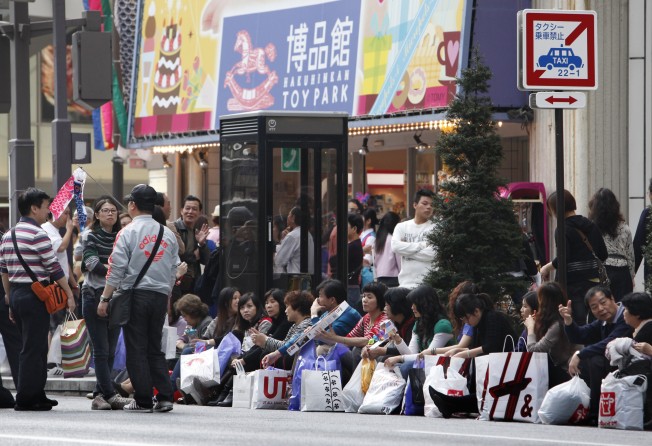USA favourite destination for big spending Chinese travellers

It’s official. The mainland Chinese have now overtaken the Americans and the Germans as the world’s biggest travel spenders. They spent US$102 billion (HK$791 billion) on international tourism in 2012, 40 per cent up on 2011, according to the UN World Tourism Organisation. This is down to the Chinese getting richer, the government allowing more of them to travel and more overseas countries grating them easier or visa-free access.
They are also now the world’s largest outbound tourism market, according to the China Tourism Academy overtaking Germany and the US, with Chinese citizens making 83 million overseas trips in 2012, which will rise to 200 million by 2020. The Chinese government is doing its bit, building 70 new airports by 2015 and expanding the existing 100 airports. The number of long haul flights to China increases all the time – you can now fly Chengdu to London direct with BA – and low cost carrier activity is ramping up.
Wish list versus reality
All this according to hotels.com’s Chinese International Travel Monitor 2013, which among other interesting details mentions that the average household annual income of the Chinese who travel is RMB109,922 (HK$138,390), compared to the average family income of RMB 49,920 (HK$62,848.5). But a quarter of travellers are much less wealthy, with annual incomes of less than RMB 70,000 (HK$88,129) per year. Whatever the purpose Chinese tend to go away for one to two weeks, 1.6 weeks for leisure, 1.7 weeks for business, and 1.8 weeks when visiting friends. Two-thirds now head off alone or with family, not in a tour group.
There’s a big difference between where they say they want to go and where they actually go. The wish list one to 10 is Australia, France, New Zealand, USA, Switzerland, Singapore, Hong Kong Taiwan, UK and Canada.
In reality they mostly stick close to home. From one to 10 they actually visit: USA, Hong Kong, Thailand, Japan, Singapore, Malaysia, South Korea, Italy, France and Australia. When they go abroad, 76 per cent say sightseeing is their priority, 65 per cent also rate dining very highly and surprisingly, only 51 per cent say shopping is a big draw. Only 5 per cent said they were interested in sport and gambling when travelling. Younger travellers, under 35, say they are interested in eating when overseas.
Chinese travellers book online
When it comes to booking their travel, half book direct with the hotel, not through an agent, 29 per cent book online and 19 per cent reserve rooms by phone. Only 36 per cent use a travel agent, and of those14 per cent are online travel agents.
According to the China Internet Network, the Mainland has internet penetration of 42 per cent.
Quite a few are last minute bookers - one in five book the week before they go. And 62 per cent overall book up to 30 days before travel. A third book 31-90 days before they go and 7 per cent book longer than 91 days. They research a lot, but a third fall back on recommendations from family and friends, with online travel and review sites the source for 29 per cent. A third of younger travellers use social media for travel tips.
Big spenders
According to hotels.com Chinese travellers are fifth in the list of big spenders, splashing out on average RMB 1,069 (HK$1,346) per room night and much more in many places such as New Zealand where they spend more than any other nationality. In Switzerland they are fourth highest on the big spender list. When it comes to star rating, 52 per cent choose three or four stars and nine per cent opt for five stars or all inclusive resorts. Only 18 per cent want to go down market with back packing or B and B.
Chinese prefer hotel meals
The vast majority - 94 per cent - like to eat in the hotel, and a hotel’s restaurant is its highly rated priority, with 52 per cent saying they spend the bulk of their spending money in the hotel restaurant, followed by room service. Drinking is less important with only 9 per cent listing the bar as the area where they spend most when overseas, their highest level of spending.
Listen up HSBC and UnionPay
Six out of 10 Chinese travellers said the ability to accept Chinese payment methods – Unionpay and Alipay - was the single most important thing affecting their hotel choice. And a quarter of Chinese travellers feel this is the area needs improving most. I wonder how many of them have been stuck with a useless UnionPay ATM card overseas.